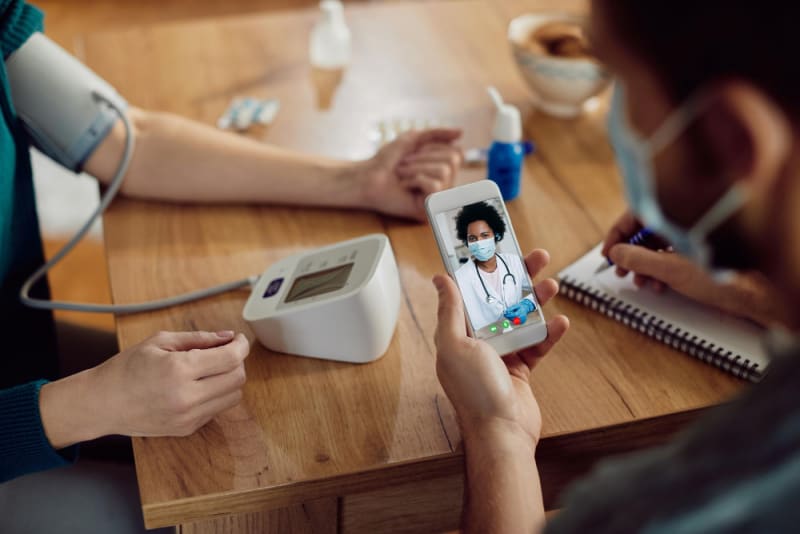In an era dominated by social media, it's no surprise that its reach has extended to the healthcare industry, revolutionizing the way patients engage with healthcare providers. With billions of users worldwide, platforms like Facebook, Twitter, and Instagram have become powerful tools for spreading information, raising awareness, and fostering meaningful connections. Harnessing the power of social media in healthcare has the potential to transform patient engagement.
By utilizing social media platforms, healthcare providers can engage with patients on a whole new level. From sharing health tips and promoting preventive care to providing updates on medical advancements, social media offers a valuable channel for disseminating information. It also allows patients to connect with each other, forming supportive communities and finding comfort in shared experiences.
Moreover, social media enables healthcare professionals to deliver personalized care by engaging in direct conversations with patients. A simple direct message or comment can go a long way in addressing concerns and building trust. Additionally, social media has proven to be an effective tool for patient education, empowering individuals to take control of their own health.
In this article, we explore the power of social media in healthcare and how it is transforming patient engagement. From empowering patients to fostering collaboration between doctors and patients, social media has the potential to revolutionize the way healthcare is delivered.
Examples of successful social media campaigns in healthcare
Social media has numerous benefits when it comes to healthcare. Firstly, it provides a platform for healthcare providers to connect with patients and disseminate important information. Through social media, doctors and hospitals can share health tips, promote preventive care, and provide updates on medical advancements. This not only empowers patients with valuable knowledge but also helps them make informed decisions about their health.
Secondly, social media allows patients to connect with each other and form supportive communities. For individuals living with chronic illnesses, social media platforms provide a space to share experiences, find emotional support, and gain insights from others who may be going through similar situations. These communities can be a source of comfort and empowerment for patients, fostering a sense of belonging and reducing feelings of isolation.
Lastly, social media enables healthcare professionals to deliver personalized care by engaging directly with patients. Through comments, direct messages, and online forums, doctors and nurses can address patient concerns, provide guidance, and offer support. This level of interaction builds trust and strengthens the patient-provider relationship, leading to better health outcomes.
Challenges and concerns in using social media in healthcare
Several healthcare organizations have successfully utilized social media to launch impactful campaigns with the help of reliable Social Media Marketing Agencies. One such example is the American Heart Association's "Go Red for Women" campaign. Through social media channels, the campaign raises awareness about heart disease in women, encourages women to take preventive measures, and promotes healthy lifestyles. The campaign's hashtag, #GoRed, has gained significant traction, with women from all walks of life sharing their stories, photos, and tips for maintaining heart health.
Another successful social media campaign is the "Movember" campaign, which is aimed at raising awareness about men's health issues, particularly prostate cancer and mental health. Through social media platforms, the campaign encourages men to grow mustaches during the month of November and share their photos using the hashtag #Movember. This campaign has gained widespread recognition and has sparked conversations about men's health worldwide.
Best practices for utilizing social media in healthcare
While social media offers numerous benefits for healthcare providers and patients, there are also challenges and concerns that need to be addressed. One of the biggest concerns is patient privacy. Healthcare providers must be cautious about sharing patient information on social media platforms, as this can potentially violate patient confidentiality laws. It is crucial for healthcare organizations to have clear guidelines and policies in place to ensure patient privacy is protected.
Another challenge is the potential for misinformation to spread rapidly on social media. With the vast amount of health-related information available online, it can be difficult for patients to discern reliable sources from unreliable ones. Healthcare organizations need to play an active role in debunking myths, providing accurate information, and directing patients to trusted resources.
Additionally, social media platforms are constantly evolving, with new features and algorithms being introduced regularly. Healthcare organizations need to stay up-to-date with these changes and adapt their social media strategies accordingly. This requires dedicated resources and expertise to navigate the ever-changing social media landscape.
Also Read: 10 Crucial Tips For Better Social Media Management
How social media is revolutionizing patient engagement
To effectively harness the power of social media in healthcare, there are several best practices that healthcare organizations should follow. Firstly, it is important to establish a clear social media policy that outlines guidelines for content creation, engagement with patients, and protection of patient privacy. This policy should be communicated to all staff members to ensure consistency and adherence to ethical standards.
Secondly, healthcare organizations should actively monitor and engage with their social media channels. Responding to patient comments, addressing concerns, and providing accurate information in a timely manner can go a long way in building trust and fostering patient engagement. Regularly posting relevant and educational content can also help establish the organization as a trusted source of healthcare information.
Furthermore, it is essential to tailor social media content to the target audience. Different platforms attract different demographics, and healthcare organizations should identify which platforms their patients are most likely to use. By understanding the preferences and behaviors of their target audience, organizations can create content that resonates and encourages meaningful interactions.
Case studies of healthcare organizations using social media effectively
Social media has revolutionized patient engagement by empowering individuals to take control of their own health. Patients now have access to a wealth of health information, support systems, and opportunities to connect with healthcare professionals. Through social media, patients can actively participate in their healthcare journey, ask questions, and seek out second opinions. This level of engagement and collaboration leads to more informed decisions and improved health outcomes.
Social media has also played a significant role in reducing the stigma surrounding certain health conditions. Individuals who may have felt isolated or ashamed of their conditions can now find solace in online communities that offer understanding and support. This sense of belonging and acceptance encourages individuals to seek help, share their experiences, and advocate for better care.
Furthermore, social media has opened up new avenues for patient education. Healthcare organizations can leverage social media platforms to share educational content, debunk myths, and promote preventive care. By providing patients with accurate and accessible information, social media enables individuals to make informed choices about their health and take proactive steps towards wellness.
Tips for healthcare professionals on using social media ethically
Several healthcare organizations in coordination with Digital Marketing Agencies have successfully utilized social media to engage with patients and drive positive health outcomes. One such case study is the Mayo Clinic, which has built a strong presence on social media platforms. The clinic leverages social media to share health tips, promote medical advancements, and provide updates on research. Through their active engagement with patients on social media, the Mayo Clinic has established itself as a trusted source of healthcare information and has significantly increased patient engagement.
Another noteworthy case study is the Cleveland Clinic, which has embraced social media to connect with patients and raise awareness about various health issues. The clinic utilizes platforms like Facebook, Twitter, and YouTube to share educational videos, patient success stories, and health news. By providing valuable and engaging content, the Cleveland Clinic has successfully fostered patient engagement and built a strong online community.
When using social media, healthcare professionals must adhere to ethical guidelines to protect patient privacy and maintain professionalism. Here are some tips for healthcare professionals to use social media ethically.
1. Respect patient privacy:
Avoid sharing any patient information or identifiable details on social media platforms. Patient confidentiality must be protected at all times.
2. Be mindful of boundaries:
Maintain professional boundaries when engaging with patients on social media. Avoid providing medical advice or making diagnoses online.
3. Verify information before sharing:
Ensure that the information shared on social media is accurate, reliable, and evidence-based. Always cite the source of information and avoid spreading misinformation.
4. Use appropriate language and tone:
Maintain a professional and respectful tone when interacting with patients on social media. Avoid using jargon or medical terms that may be difficult for patients to understand.
5. Stay up-to-date with social media policies:
Familiarize yourself with the social media policies and guidelines of your healthcare organization. Stay informed about any updates or changes to these policies.
Also Read:How Digital Marketing Can Outshine Pharma and Healthcare Business?
Social media tools and platforms for healthcare organizations
There are several social media tools and platforms that healthcare organizations can leverage to enhance patient engagement. Here are some popular ones:
1. Facebook:
With billions of active users, Facebook provides a wide reach and allows healthcare organizations to share educational content, promote events, and engage with patients through comments and direct messages.
2. Twitter:
Twitter is a great platform for real-time updates and quick information sharing. Healthcare organizations can utilize Twitter to share news, health tips, and engage in conversations with patients and industry experts.
3. Instagram:
Instagram is a visually-driven platform that can be used to share infographics, patient success stories, and behind-the-scenes glimpses into healthcare organizations. It is particularly popular among younger demographics.
4. YouTube:
YouTube is a powerful platform for sharing educational videos, patient testimonials, and expert interviews. Healthcare organizations can create their own channels to provide valuable content and engage with patients.
5. LinkedIn:
LinkedIn is a professional networking platform that healthcare professionals can use to connect with colleagues, share industry insights, and establish themselves as thought leaders in their field.









Top comments (0)